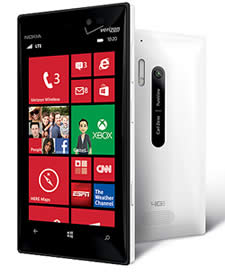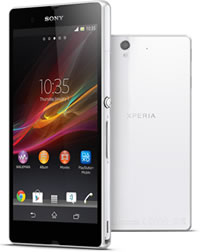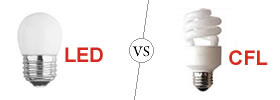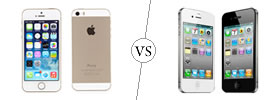Difference between Nokia Lumia 928 and Sony Xperia Z
Key Difference: Nokia has recently announced a new phone to its line-up; the Lumia 928. The phone comes with a 4.5-inch AMOLED capacitive screen with broad back bezel. The phone is quite bulky and heavy, compared to other newer smartphones that are focusing on getting thinner and lighter. Sony Xperia Z is the latest smartphone designed, manufactured and marketed by Sony Mobile and was released February 2013. The Xperia Z is a bar phone that is available with 5 inch TFT touch screen that has approximately 441 ppi pixel density that produces a sharp and clear display. The phone sports 1.5 GHz Quad-core Krait, 2GB RAM with up to 16 GB internal memory storage capacity and up to 32 GB expandable storage available.
 Nokia has recently announced a new phone to its line-up; the Lumia 928. This phone is considered as the flagship phone for Verizon (a US telecommunications company) but it is also available in an unlocked version. In terms of hardware, the phone is very similar to Nokia’s flagship 920 but has added on extra features and tweaks that can go either way. Although, the phone has been modified, there are no revisions to the Windows Phone 8.
Nokia has recently announced a new phone to its line-up; the Lumia 928. This phone is considered as the flagship phone for Verizon (a US telecommunications company) but it is also available in an unlocked version. In terms of hardware, the phone is very similar to Nokia’s flagship 920 but has added on extra features and tweaks that can go either way. Although, the phone has been modified, there are no revisions to the Windows Phone 8.
The Nokia Lumia 928 does not share the physical characteristics of the 920. It is in a bar from that has a slight bulge on the back that makes the phone comfortable to hold. Another small curve can be found on the bottom on which speaker grille is strategically placed that keeps volume from getting muffled when placed flat on the back. The phone comes with a 4.5-inch AMOLED capacitive screen with broad back bezel. The phone is quite bulky and heavy, compared to other newer smartphones that are focusing on getting thinner and lighter.
The Nokia phones are known for the bright interactive colors, which are no longer an option in this model. The phone is available only in two options: matte black and glossy white. This is believed to be because it is a Verizon exclusive phone. The phone comes with the basic structure of the Nokia phones with the volume rocker, power button and a dedicated camera key on the right edge. The power button is very similar to volume rocker only slightly smaller, making it difficult to find it without looking. The volume rocker is also a little to access and hit during mid-call. The left side of the device is bare, while the top hosts a center-mounted Micro USB port, a pull-out SIM tray and a 3.5mm jack. The back stands out with a bigger Xenon flash and the camera with Carl Zeiss lens.
The phone comes with a 4.5-inch AMOLED capacitive touchscreen with ~334 ppi pixel density and boasts excellent sunlight readability. The AMOLED screen is better for side viewing angles and sunlight visibility. The phone does have excellent resolution and the images are sharp, crisp and clear. The screen can also be configured for ‘high touch sensitivity’ known as ‘glove mode’. The phone also has amazing speakers but almost all reviewers said that when talking on the phone, the voice on the other end sounded hollow and unrealistic. The loud speaker also lacks bass and depth. However, the noise cancellation on the phone works exceptionally.
The phone is powered by 1.5 GHz Krait Dual-core Qualcomm MSM8960 Snapdragon processor, making it fast. The phone does not lag or even slow down. As it is a windows phone obviously it is powered by the Windows Phone 8 OS. The Android vs. Windows Phone debate is always the same. Though, the OS is great, Android does have more apps to offer and is also more customizable. The phones offers 1 GB RAM and has 32 GB internal memory. For users looking to add more than 32GB of data will run out of luck, as it does not offer adding extra memory.
The device houses an 8.7 MP PureView rear camera and a 1.2 MP front camera. The rear camera comes with the Carl Zeiss optics for sharper images. It also comes with the typical autofocus, image stabilization, flash etc. However, Nokia does proud itself for its low-light image technology and rightfully so. The low-light images are quite sharp and does not blur. In addition to that, the company also offers xenon flash that is bright and powerful. The xenon flash can only be used as flash and cannot be left lit, so the company has also added a secondary flash for videos and flashlight purposes. The camera does have slow shutter speed, which requires people to hold the camera still for long periods of time to avoid motion blur.
The device houses a non-removable Li-Ion 2000 mAh battery (BV 4-NW) that boasts good power. The Verge could run the battery for approximately 27 hours, while Tech Hive got only 6.5 hours out of it. The power of the battery depends on running applications, usage and many other different factors. In all, the phone is okay but does not come close to its 920 cousin.
 Xperia Z and Xperia ZL are two phones that Sony has launched in competition to Samsung Galaxy S3 and iPhone 5. These two phones are similar in design and features, with only slight alterations to the ZL. These phones are Sony’s plan to put itself back on the smartphone market. Sony announced the phones at the 2013 CES in January.
Xperia Z and Xperia ZL are two phones that Sony has launched in competition to Samsung Galaxy S3 and iPhone 5. These two phones are similar in design and features, with only slight alterations to the ZL. These phones are Sony’s plan to put itself back on the smartphone market. Sony announced the phones at the 2013 CES in January.
The Sony Xperia Z is the latest smartphone designed, manufactured and marketed by Sony Mobile and was released February 2013. The phone is powered by Android and is one of the latest additions to phones launched by Sony after its separation from Ericsson. The Xperia Z is a bar phone that is available with 5 inch TFT touch screen that has approximately 441 ppi pixel density that produces a sharp and clear display. The design of the phone is focused on creating a balance and symmetry in all directions and is termed as “OmniBalance” by Sony. The phone is held together by a skeleton frame made from glass fibre polyamide. The glass on the front and back are covered by shatterproof film. One of the amazing features about the phone is that it is dust and water resistance. It has captured attention for its ability to being submerged in water.
The phone differs from its predecessors in many ways. The company has also shifted the power button from the top of the phone to the middle of the right side making it easier for the person to operate the phone with one hand. The phone sports 1.5 GHz Quad-core Krait, 2GB RAM with up to 16 GB internal memory storage capacity and up to 32 GB expandable storage available. The quad-core processor makes the phone pretty fast and powerful, though Wired Magazine claims that the phone is a bit slow during starting up the camera. The phone offers a 13.1 MP Exmor RS camera and a 2 MP 1080p Exmor R front camera. The camera reviews on almost every website have been spectacular claiming that phone produces crisp images and the quality of the pictures is good even in low-lighting situations. The phone also offers USB-on-the-go, which allows users to connect USB drives to the phone. The phone is also offered at a decent price is considerably worth the every penny it charges.
The information for the detailed table about the two phones has been taken from the Nokia website, theverge.com, Sony Mobile website and GSMArena.com.
|
|
Nokia Lumia 928 |
Sony Xperia Z |
|
Launch Date |
May 2013 |
February 2013 |
|
Company |
Nokia |
Sony Mobile |
|
Size |
133 x 68.9 x 10.1 mm |
139 x 71 x 7.9 mm |
|
Display |
4.5-inch AMOLED capacitive touchscreen |
1920 x 1080 pixels, (~441 ppi pixel density) 16 million colors |
|
Screen |
768 x 1280 pixels (~334 ppi pixel density), 16 million colors |
5.0 inches TFT |
|
Protection |
Corning Gorilla Glass 2 |
IP57 certified - dust and water resistant, water resistant up to 1 meter and 30 minutes and shatter proof and scratch-resistant glass. |
|
Weight |
162 grams |
146 g (5.15 oz) |
|
2G Network |
GSM 850 / 900 / 1800 / 1900 CDMA 800 / 1900 |
GSM 850 / 900 / 1800 / 1900 - C6602, C6603 |
|
3G Network |
HSDPA 850 / 900 / 1700 / 1900 / 2100 CDMA2000 1xEV-DO |
HSDPA 850 / 900 / 2100 - C6603 HSDPA 850 / 900 / 1700 / 1900 / 2100 - C6602 |
|
4G Network |
LTE 700 MHz Class 13 / 1700 / 2100 |
LTE 800 / 850 / 900 / 1800 / 2100 / 2600 - C6603 |
|
GUI |
Windows Phone UI |
Sony UI |
|
CPU speed |
1.5 GHz Krait Dual-core |
1.5 GHz Quad-core Krait |
|
GPU |
Adreno 225 |
Adreno 320 |
|
OS |
Windows Phone 8 |
Android OS, v4.1.2 (Jelly Bean), planned upgrade to v4.2 (Jelly Bean) |
|
Chipset |
Qualcomm MSM8960 Snapdragon |
Qualcomm MDM9215M / APQ8064 |
|
RAM |
1 GB |
2GB |
|
SIM Size |
microSIM |
microSIM |
|
Internal Memory |
32 GB |
Up to 16 GB |
|
Expandable Memory |
N/A |
up to 32 GB |
|
Sensors |
Ambient light sensor, Accelerometer, Gyroscope, Proximity sensor, Magnetometer |
Accelerometer, gyro, proximity, compass |
|
Connectivity |
NFC, Wi-Fi Channel bonding,2G, 3G, 4G, Wi-Fi, USB and Bluetooth |
4G LTE (100 mbps), GPS, GLONASS, USB, Bluetooth, NFC, Wi-Fi, DLNA, USB On-The-Go and MHL. |
|
Data |
GPRS, EDGE, WLAN, Bluetooth, Wi-Fi, NFC, USB. |
GPRS, EDGE, WLAN, Bluetooth, NFC and USB |
|
Speed |
EV-DO Rev. A, up to 3.1 Mbps; HSDPA, 42.2 Mbps; HSUPA, 5.76 Mbps; LTE, Cat3, 50 Mbps UL, 100 Mbps DL |
HSDPA, 42 Mbps; HSUPA, 5.8 Mbps; LTE, Cat3, 50 Mbps UL, 100 Mbps DL |
|
WLAN |
WLAN IEEE 802.11 a/b/g/n |
Wi-Fi 802.11 a/b/g/n, Wi-Fi Direct, DLNA, Wi-Fi hotspot |
|
Bluetooth |
Bluetooth v3.0 Object Push profile (OPP) 1.1, Hands-free profile (HFP) 1.5, Advanced Audio Distribution Profile (A2DP) 1.2, Audio/Video Remote Control Profile (AVRCP) 1.4, Phone Book Access Profile (PBAP) 1.1 |
Bluetooth v4.0 with A2DP |
|
USB |
microUSB 2.0 |
microUSB v2.0. |
|
Primary Camera |
8.7 MP PureView 3264 x 2448 Pixels |
13 megapixel Exmor RS camera with Auto focus and Burst Mode; 4128x3096 pixels |
|
Secondary Camera |
1.2 MP, 720p@30fps |
2 MP 1080p Exmor R |
|
Video |
1080p@30fps, video stabilization, stereo sound rec. |
1080p@30fps, continuous autofocus, video light, video stabilizer, HDR |
|
Camera Features |
|
|
|
Sound Enhancement |
Dolby Headphone sound enhancement Active noise cancellation with dedicated mic |
xLoud™ Experience, 3D Surround Sound (VPT) |
|
Audio supported formats |
ASF, MP4, AAC, AMR, MP3, M4A, WMA, 3GP, 3G2 |
MP3/eAAC+/WMA/WAV/Flac |
|
Video supported formats |
MP4, WMV, AVI, 3GP, 3G2, M4V, MOV |
MP4/H.263/H.264/WMV |
|
Battery Capacity |
Non-removable Li-Ion 2000 mAh battery (BV 4-NW) |
Non-removable Li-Ion 2330 mAh battery |
|
Talktime |
2G: 11.8 hours 3G: 13 hours |
Up to 11 hours |
|
Standby Time |
2G: 606 hours 3G: 513 hours |
Up to 550 hours |
|
Available Colors |
Black, White |
Black, White, Purple |
|
Messaging |
SMS (threaded view), MMS, Email, Push Email, IM |
SMS (threaded view), MMS, Email, IM, Push Email |
|
Browser |
HTML5 |
HTML5 |
|
Radio |
N/A |
Stereo FM radio with RDS |
|
GPS |
GPS with A-GPS support and GLONASS |
Yes, with A-GPS support and GLONASS |
|
Java |
N/A |
Yes, via Java MIDP emulator |
|
Additional Features |
|
|
Image Courtesy: nokia.com, sonymobile.com









Add new comment